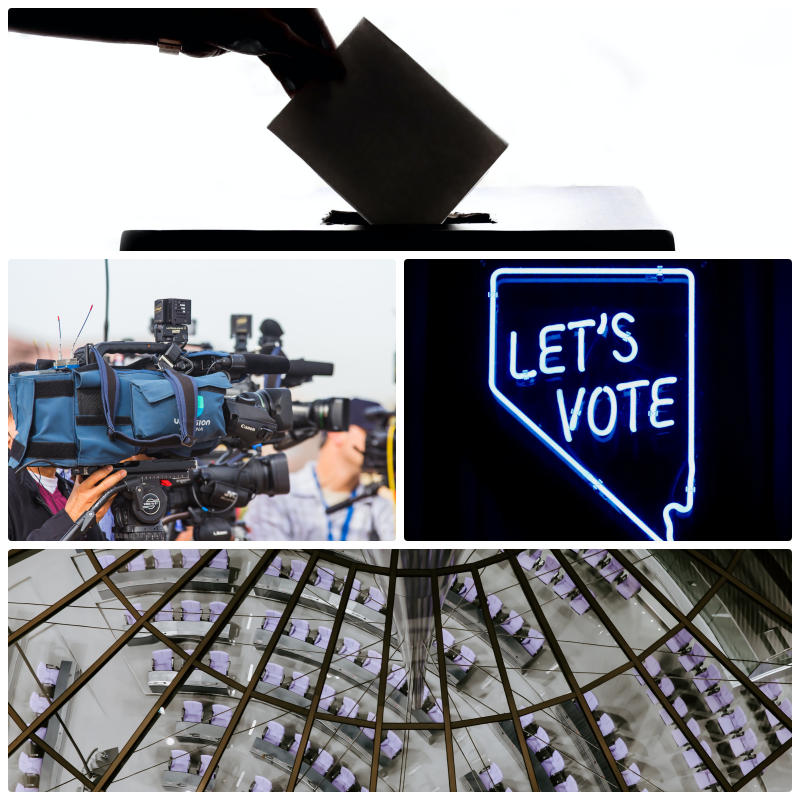Vote Boring
I’ve often joked that German politics is boring and apparently I’m not the only one who thinks it. A recent New York Times article criticised the frontrunners in the federal election campaign for lacking charisma. It’s hard to deny. There are few barnstorming speeches and no glitzy advertising campaigns to catch the eye. German elections aren’t Hollywood, but it seems that German voters are perfectly happy with that.
That’s not say the election has been entirely free of controversy. Throughout the summer and leading into September, each of the main candidates has faced one or more scandal, from accusations of plagiarism, questionable reactions to the catastrophic flooding in the north of Germany and even a police raid on the Finance and Ministry, the head of which also happens to be the frontrunner to replace Angela Merkel.
I may enjoy poking fun at vanilla German politics, but I can’t help thinking there’s something appealing about an election that isn’t instantly polarising or fuelled by spectacle over substance. After living through the daily drama of Brexit and the Trump presidency, watching the German election trundle through to its conclusion on Sunday has been less a test of my nerves and rather a test of my ability to sit through a never ending festival of TV debates without slipping into a coma.
Perhaps the reason non-German commentators have been so ready to criticise the lack of excitement is because many of them have spent a long time covering their own national spectacles. I certainly get the feeling that American and British journalists have become addicted to the drama, craving the breathless excitement of knife edge votes in parliament or divisive, poorly worded late night tweets. You really can have too much of a bad thing.
Then again, maybe the German election should be more fraught, after all, the in-tray of the next German Chancellor will be overflowing. The climate crisis, the pension system, failing infrastructure, the increase of right-wing extremism and that’s all without mentioning the pandemic recovery. Although Angela Merkel is currently the most popular politician in the country, she is leaving behind numerous issues as she packs up her desk in the Chancellery.
Of course, not everyone in Germany is entirely happy with the understated nature of campaigning. The comedian and political satirist Jan Böhmermann has bemoaned the lack of vision from the candidates. To some extent I agree, reading the manifestoes of the parties is frankly a tortuous journey in political platitudes, at some points it felt as if I was reading the same document over and over. Of course the various solutions to the problems faced in Germany are different by degrees, but barring the Green manifesto, there was hardly anything radical being proposed. It’s no surprise that the Green Party were soaring in the polls up until the point they went into detail about what they would actually do in power. Things suddenly took a downward trajectory when it became clear that a Green led government would make serious changes to the status quo.
Böhmermann also pointed out that Angela Merkel’s time in office was a period of deep stasis, with the comedian declaring “we were anaesthetised for 16 years.”. Germany has become very used to the calm of Merkel’s Germany. The main candidates have invoked Merkel throughout the campaign or have compared their own abilities to that of the outgoing Chancellor. Even the radical policies of the Greens were calmly voiced and carefully outlined. More spreadsheet than battle cry.
There may be a good reason for this approach. Whatever the parties present in their manifestos may well evaporate on contact with reality. It was always unlikely that the next German government would be a single party. Coalitions are the norm here and whatever grand ideas a party may have or want to promote, policies can change during coalition negotiations. No party seeking to form a government wants to begin with accusations of “selling out” or “betraying the voter”. Better to talk of the big ideas with quiet voices than to make a grand show of policies that may well never be implemented.
Image Credit
Photo by History in HD on Unsplash
Photo by Parker Johnson on Unsplash
Photo by Markus Spiske on Unsplash
Photo by Debashis RC Biswas on Unsplash
Photo by Kristian Løvstad on Unsplash








